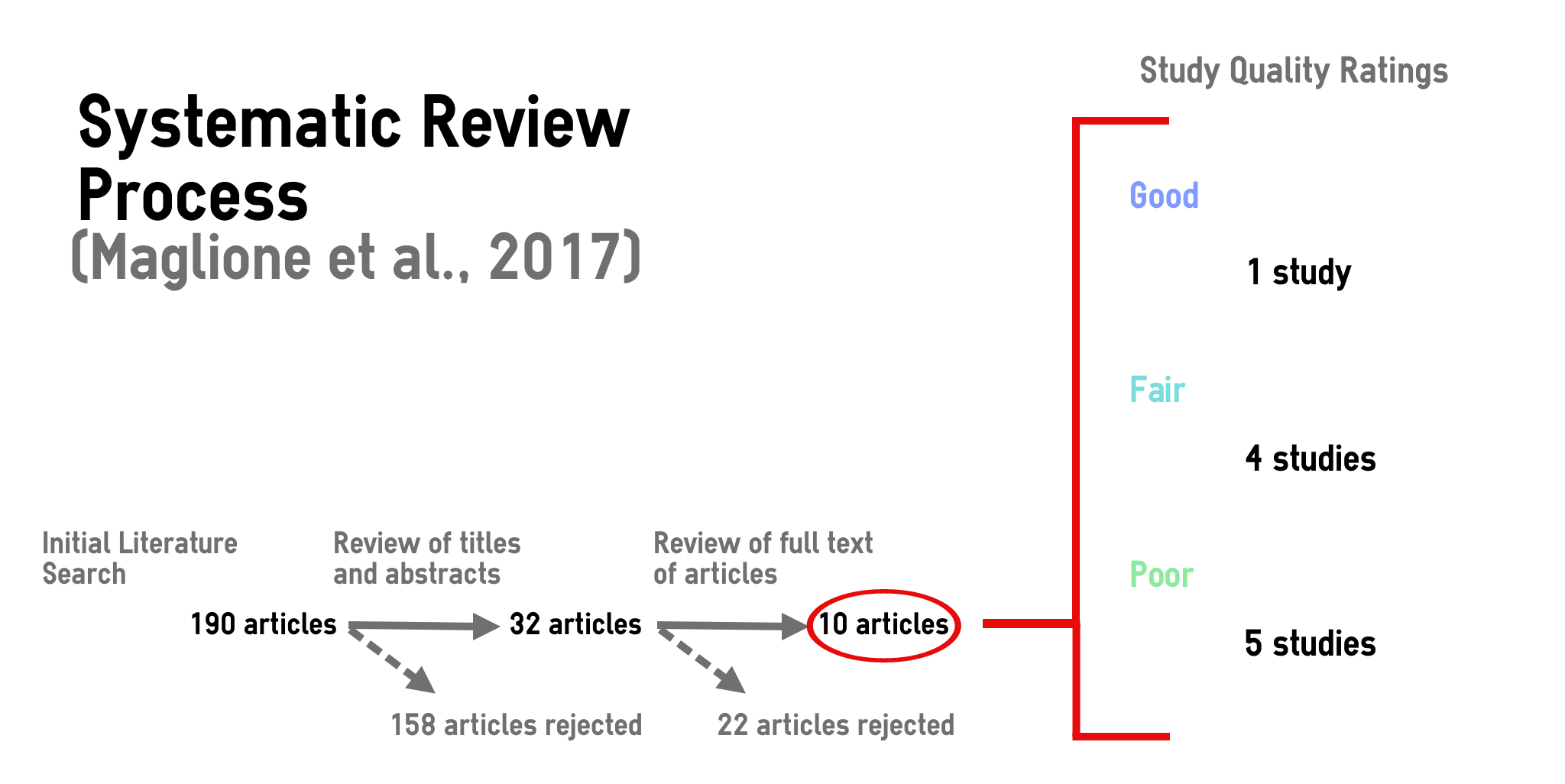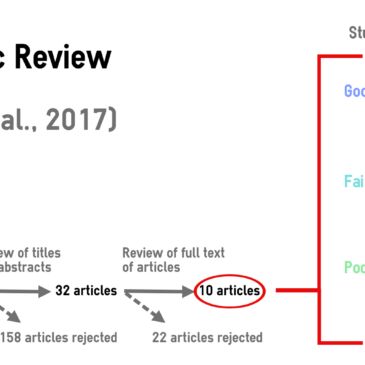Mindfulness has become popular in many settings, including in mental health treatment. Research shows that mindfulness-based treatments can be helpful for people experiencing substance use disorders. There are different kinds of mindfulness practices and many include components such as yoga and meditation. This week, ASHES reviews a systematic review by Margaret Maglione and colleagues that described the currently available studies of mindfulness meditation for reducing or quitting tobacco use.
What was the research question?
Have mindfulness meditation interventions been rigorously tested for reducing or quitting tobacco use?
What did the researchers do?
The researchers identified studies related to mindfulness meditation and tobacco use. They found an initial pool of 190 articles by searching online research databases. However, only 10 of these articles used a randomized controlled trial (RCT) study design and measured whether participants quit or cut down on tobacco use. Members of the research team then extracted details of the methods and results of these studies. Based on this information, the research team rated the quality of the studies using pre-established guidelines (see figure). Finally, the authors pooled the results of all 10 papers and performed a meta-analysis.
 Figure. The systematic review process involved multiple stages to identify relevant articles. These articles were then rated on measures of study quality. Click image to enlarge.
Figure. The systematic review process involved multiple stages to identify relevant articles. These articles were then rated on measures of study quality. Click image to enlarge.
What did they find?
The studies that the researchers identified varied in terms of methodological quality, and only one study was rated as being of “good” quality according to the pre-established guidelines.1 Mindfulness meditation interventions were not associated with statistically significant improvements on stopping or reducing tobacco use in comparison to the control conditions.2
Why do these findings matter?
It is important for healthcare providers to know which treatments have the best scientific support. While there are already a number of research-backed treatment options for helping people quit or cut back on smoking, not every treatment works for every person, so finding other effective treatment options remains important. This study indicates that treatment providers shouldn’t rely solely on mindfulness meditation as a treatment for tobacco use, as we currently do not have enough evidence to know whether it is effective.
Every study has limitations. What are the limitations in this study?
Few studies met the author’s inclusion criteria, resulting in a small sample. This means it is difficult to draw confident conclusions at this time about the effectiveness of mindfulness meditation for quitting or reducing smoking. Many of the comparison conditions in the 10 studies were treatments that are already established to be effective for smoking. This could have masked the effectiveness of the mindfulness meditation interventions. It is possible that mindfulness meditation is as effective as these other treatments.
For more information:
If you are concerned about your smoking, you can call 1-800-QUIT-NOW to be connected to a tobacco quitline in your state. You can find more information about tobacco quitlines here. For more information about mindfulness, see our Special Series on Mindfulness and Addiction. For additional tools, please visit the BASIS Addiction Resources page.
— Rhiannon Chou Wiley
What do you think? Please use the comment link below to provide feedback on this article.
________________
1 To be considered “good” quality, a randomized controlled study must: 1) have comparable groups of participants in all the study conditions, and most of these participants must stay throughout the study; 2) use measurement instruments that have been well established to be valid and reliable, and apply these measurements to all participants in the same way; 3) clearly describe the treatments applied to each group in the study; 4) consider all important outcomes; account for potential confounding variables when analyzing data; and 5) analyze data from all the participants who took part in the study, even if they dropped out of the study early.
2 Control conditions included a variety of therapy-based and non-therapy comparisons. Some of the therapy-based comparison conditions include cognitive-behavioral therapy, the American Lung Association’s Freedom from Smoking program, a smoking quitline plus nicotine replacement therapy, and cue exposure therapy.





Bruce D. Forman, PhD October 30, 2018
Since all interventions may not work for everyone finding evidence-based approaches to smoking cessation is critical to advancing our knowledge base. It is vitally important to discover which approaches to stopping smoking work best for which populations and under what conditions.